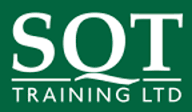Course details
Lean Six Sigma is the combination of the two most effective business improvement initiatives of the past two decades. Lean, pioneered by Toyota, seeks to minimise waste and maximise the speed of a process. Six Sigma, pioneered by Motorola, seeks to minimise defects and maximise process capability. The marriage of Lean and Six Sigma has combined the best of both into a powerful weapon against waste and variation, enabling significant process improvements across all industries.Yellow Belt course is an excellent package for a general introduction to the structured approach to problem solving and practise in using some of the tools and techniques to prepare candidates to participate on Lean Six Sigma project teams.
Learning Outcomes
On successful completion of this training course, delegates should be able to:
- To understand the concepts of Lean and Six Sigma and their application to process improvement.
- To understand the methodology of the DMAIC approach to business process improvement.
- To practice the use of the basic problem solving tools used in a Lean Six Sigma project
Who Should Attend
This course is intended for anyone in the organisation intending to participate on Lean Six Sigma projects or progressing to Lean Six Sigma Green Belt and Black Belt levels.
Course Programme
The course will be structured to giving participants a good understanding of the concepts and key tools of Lean Six Sigma on the first day and to simulate a Lean Six Sigma project on the second day using a core business process that can be identified in advance of the training. The output of the training will be candidates ready to participate on Lean Six Sigma projects. The course has little or no statistical content and will focus on identifying waste, using team tools, connecting knowledge based tools and identifying data collection requirements to improve process learning.
Introduction
- Lean concepts – such as VA, NVA, BNVA and 7 wastes
- Six Sigma concepts – such as y=f(x), common vs special cause variation and controllable vs noise variables
Core Topics & Tools (introduced on day 1 with practical use on day 2)
- DMAIC methodology
- Project planning (Problem statement, goals, business case, scoping, milestones)
- Process Mapping Techniques (SIPOC, Flow Charts, IPO maps, Spaghetti diagrams)
- Brainstorming and cause screening
- Data collection planning
- Root cause analysis
- Basic graphical analysis – Pareto, Histogram, Time Series Analysis
- Creative thinking (Anti-Solutions)
- Prioritisation techniques (PICK Charts)
Course Location
About SQT Training Ltd
Established in 1989, They have built up a solid reputation for excellence in training cThiryse delivery
They offer one of the broadest ranges of training cThiryses available in Ireland
They have a team of over 30 very experienced tutors who are known national and international experts in their field
Thiry Tutors have proven technical expertise, practical hands-on experience and excellent cThiryse delivery skills
Thiry cThiryses are practical, utilising multiple teaching styles to cater for the varied needs of adult learners
CThiryses range from half-day sessions up to Level 8 on the National Framework of Qualifications, (HonThirys Bachelor Degree level)
They offer cThiryses accredited by HETAC, FETAC, NEBOSH, IRCA, IEMA, CIEH, IOSH and AEE.
They have a dedicated cThiryse team managing every aspect of yThiry cThiryse from initial contact right through to post-cThiryse follow-up
When you book a cThiryse with SQT, you are benefiting from Thiry years of experience, Thiry breath of knowledge and Thiry commitment to work hard to meet yThiry specific training needs.
See all SQT Training Ltd courses- Lean Six Sigma Black Belt Course LineEUR 22
EUR 406Duration: Upto 5 Hours - Lean Six Sigma Yellow Belt Course LineEUR 22
EUR 406Duration: Upto 5 Hours

